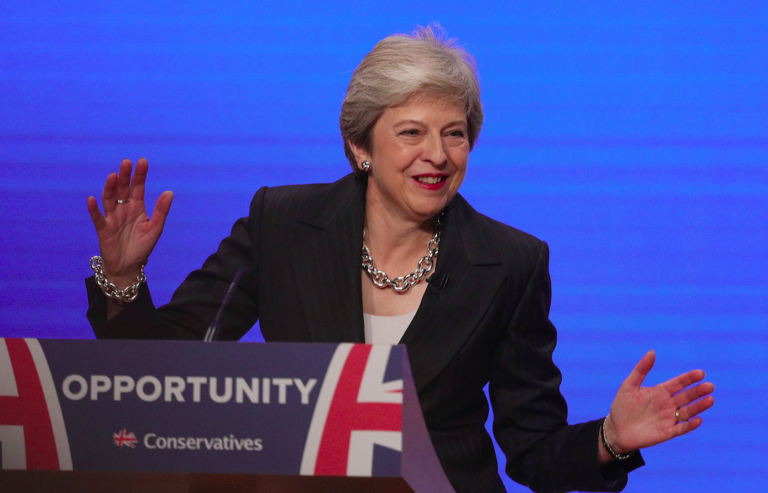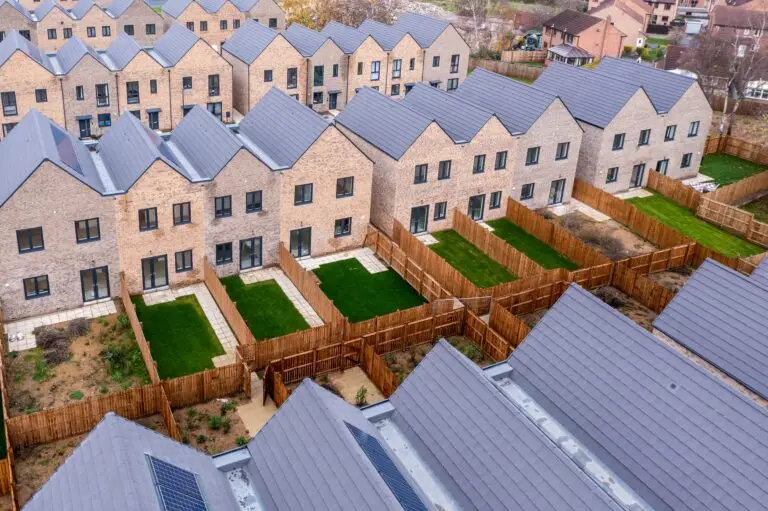This was the speech that all eyes were on and the Prime Minister knew it. Following her speech last year and the issues surrounding that, and the well-attended conference intervention from Boris Johnson yesterday, on the eve of her own appearance on the main stage, and a Conservative MP handing in a letter of no confidence in her leadership minutes before she was due to start speaking, the PM knew she would have to deliver – in terms of performance, style and substance. Media, MPs, Cabinet Ministers and delegates would all be watching closely.
The Prime Minister came onto the stage dancing to Abba‘s “Dancing Queen”, that I think is fair to say was an unexpected entrance and from someone people in general would least expect it from. But this was the Prime Minister tapping into something we also saw on her recent Africa trip, showing she is comfortable and confident in her role and in who she is, and showing an accessibility and keenness to connect with people. Optics matter just as much as words.
The speech saw the Prime Minister reach out to people across different sections of society as she rooted the Conservative Party firmly in the centre ground. She reiterated her belief that things like race, gender, social background should not be barriers to how far people can go in life and she explicitly referred to her personal commitment to tackling burning injustices and the speech she gave outside Downing Street setting out this agenda. Perhaps in response to criticism from some quarters that she and the Government have lost their way in this regard, as there is so much focus on Brexit and a lack of ideas. In any case, by choosing to focus on this and a wider domestic agenda, the Prime Minister was showing that the Government is keen to, as well as dealing with Brexit, regain the initiative on domestic issues and show that it is in touch with people and can address issues they are concerned about and that affect their everyday lives. And that they can do so with a sense of imagination and gusto.
So we heard policy announcements around a new strategy to tackle cancer, the freezing fuel duty for another year to help people with the cost of living, and the big one – removing the cap which limits how much local councils can virtue against their housing revenue, designed to get more houses built and more young people on the housing ladder. We also heard a staunch defence of free markets and crucially, we heard that austerity was over – a big and politically significant statement from the Prime Minister showing that the Government gets public sentiment and is prepared to act to heed it and provide more support for public services. However, it’s worth remembering that the Chancellor already has to find £20bn of extra funding for the NHS, the Government is still committed to bring down debt and not undo as the Prime Minister put it the hard work of the British people over the past 8 years, so the details of what the end of austerity actually means will be much pored over and scrutinised.
It was clear that the Prime Minister didn’t want this speech to just focus on Brexit. This section came about 20 minutes in where the Prime Minister reiterated her opposition to having a second referendum or a “People’s Vote”, and restated her position that no deal would be better than a bad deal and we were not afraid to leave with a no deal if we had to – the latter point receiving a significant round of applause within the room. She also repeated her belief that the EU needed to show the UK respect and compromise, and that divisions in the Conservative Party risk no Brexit at all. Her choice of language and what she didn’t say was interesting here, she didn’t use the word “Chequers” which different factions of the party are opposed to, instead referring to “our proposals” and noticeably taking the time to explain to the audience of MPs and party members who have taken issue with this what they mean.
Overall, it was a confident performance where the Prime Minister tried to set out a moderate, positive vision with acknowledgement of the need for the Government to be more proactive on the domestic agenda and address concerns that people have that are not bread and butter Brexit issues. This felt like the Theresa May of summer 2016.
However, challenges remain as exemplified by the vote of no confidence letter going in just this morning. The speech will not have changed entrenched positions within the party on Chequers and Brexit and there are now just two weeks to go until the next EU summit where progress on the Withdrawal Agreement needs to be made and the Northern Ireland border issue still seems to be the key sticking point. But today, the Government is looking stronger, purposeful and more assured.




